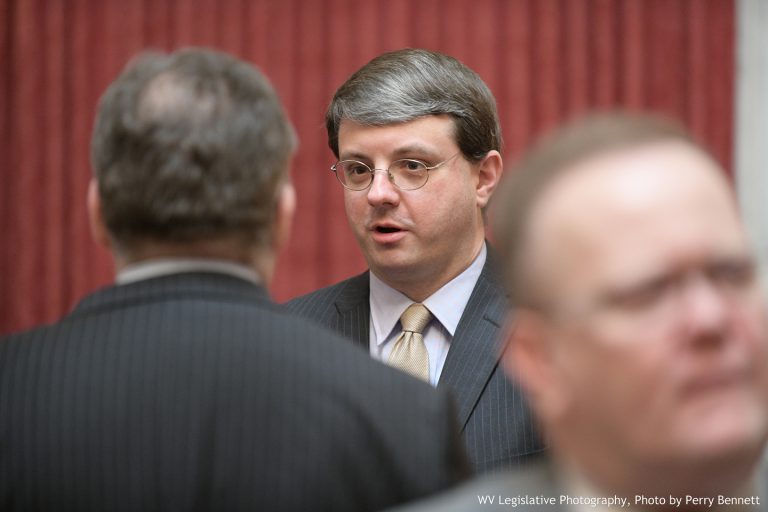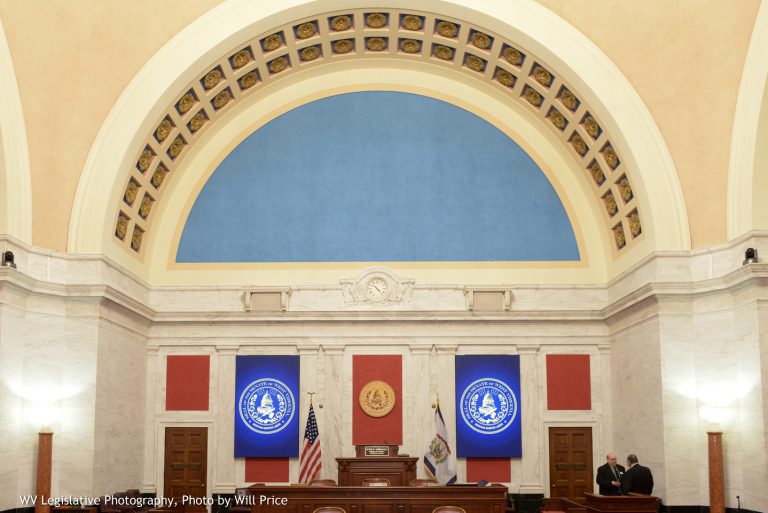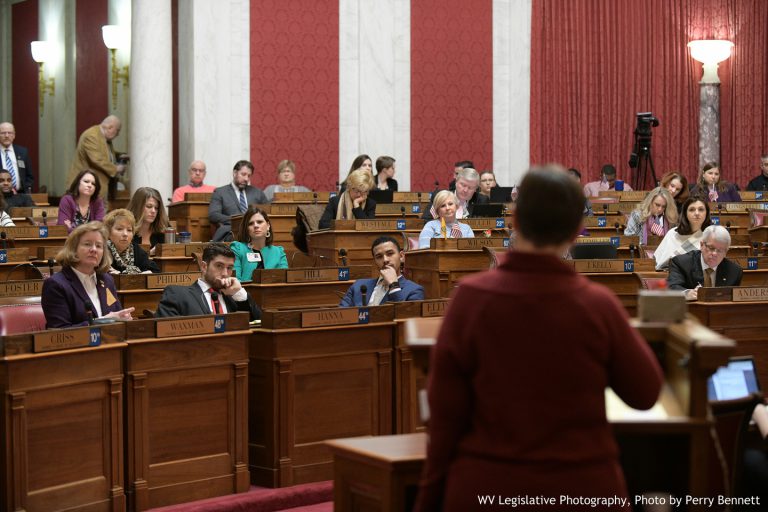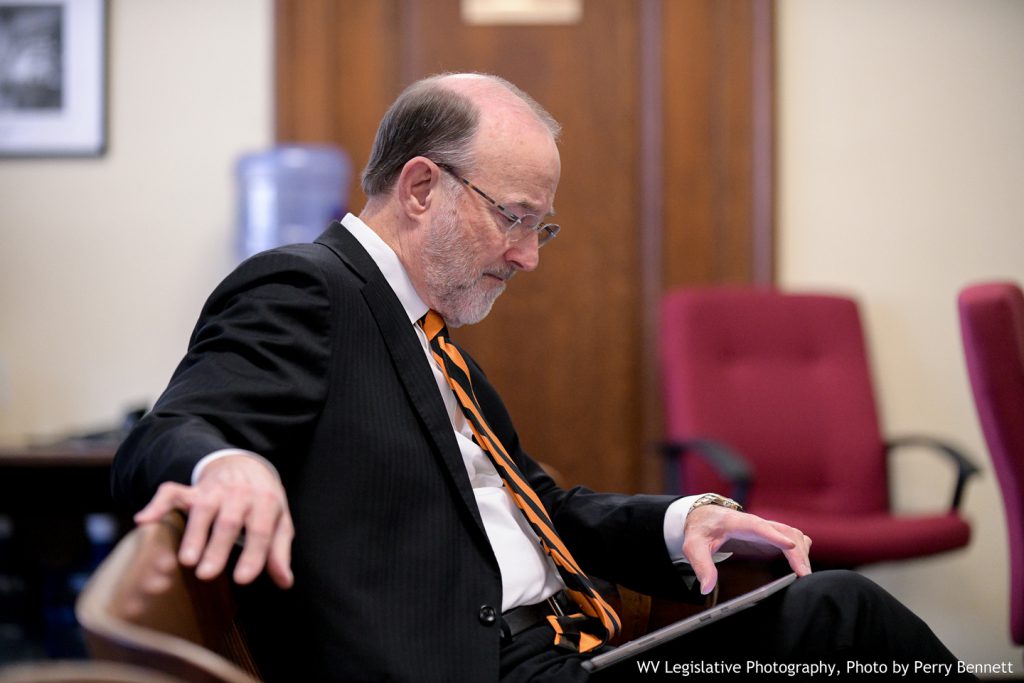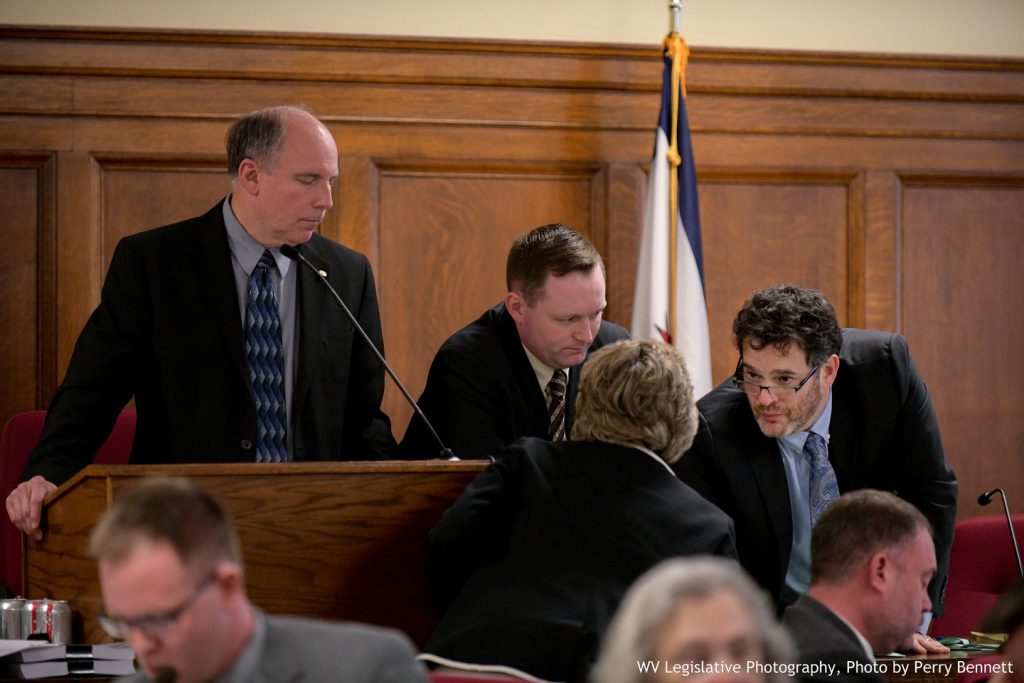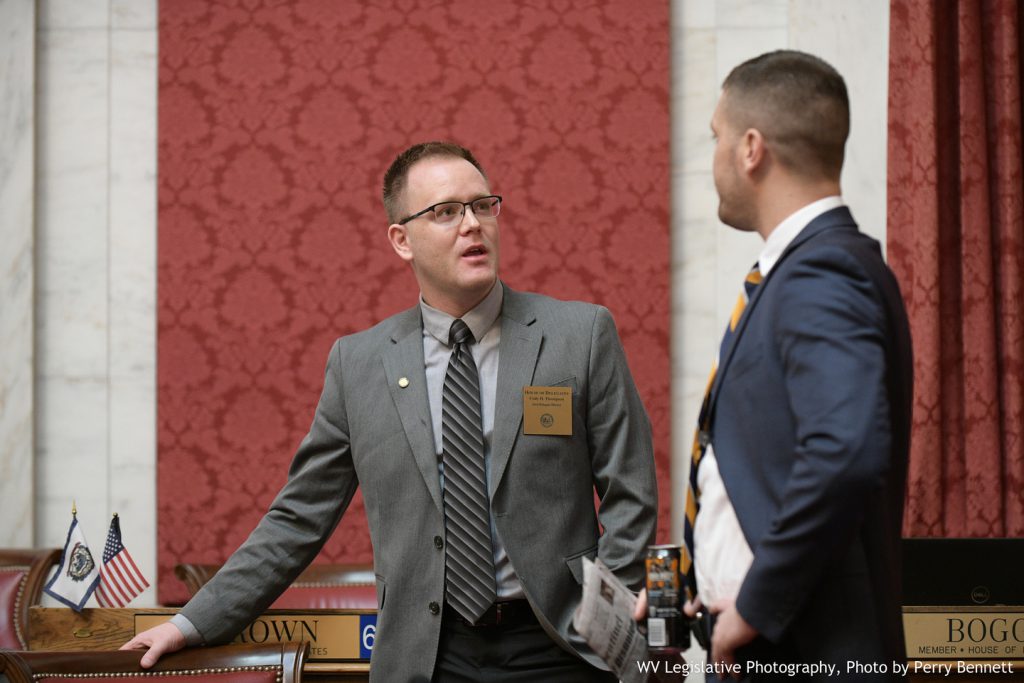As of 4 p.m. on Friday, January 25, 2019, there have been 677 bills introduced in the House of Delegates. Of those bills, twenty-four have been passed by the House and have been advanced to the Senate for further consideration. Noteworthy Bills that passed the House This Week:
House Bill 2190 would modify bail requirements. This would allow for the release of people with certain misdemeanors, providing that they appear in court on their allotted date. This bill also passed the House last session.
House Bill 2311 would stop requiring full year reportage of short term merchant licensees. Currently, statute requires that those who receive a short term license for selling goods temporarily within the state have to report those taxes throughout the entire year. This bill would only require them to report those expenses until the fees are paid off.
House Bill 2362 would place language that allows counties to adopt a policy which allows any qualified voter to vote by emergency absentee ballot who is confined to a specific location within the county on or after the seventh day preceding an election and prevented from travelling to a polling place and voting in person because of; illness, injury, physical disability or immobility to extreme advanced age.
House Bill 2193 would revert savings bonds that have been completely unclaimed for five or more years back into the hands of the state. This bill is an attempt to provide a purpose for the thousands of unclaimed savings bonds currently in the possession of the state.
House Bill 2095 would take measures to further assess a public West Virginian K-12 student’s college readiness in 11th and 12th grade. This would allow a progress report to be administered to 12th graders to assess their readiness, but eliminates the requirement that a student placed in transitional education programs as a high school senior must re-take a college readiness assessment if the student has already taken the examination or assessment in their 11th grade year.
House Bill 2423 would prevent certain convicted sex offenders from taking on a supervisory position in an organization largely involving children. State organizations such as 4-H camps, religious organizations, and many other extracurricular or curricular programs would no longer be permitted to staff those convicted of certain sex crimes if this bill passes.
House Bill 2009 is an education bill that would create a specialized program underneath the Innovation and Education Grant Program that would recognize state schools that meet or exceed certain benchmarks as “mastery” schools. This would thereby increase a school’s merit.
House Bill 2446 is a bill that would establish a Blue Alert Plan which would aid in locating a law-enforcement officer who has disappeared in the line of duty or locating dangerous suspects.
House Bill 2527 would specify that the prison time for lottery forgery crimes must be one to five years.
Bills to be considered in the House
House Bill 2005 is known as the Broadband Expansion Act. This bill would attempt to expand internet access for rural areas within the state that currently do not have the technical capabilities for internet. This bill, generally, would specify the regulatory authority for the juxtaposition and cooperation of small wireless facilities, in order to better increase access.
House Bill 2532 is a bill that would allow West Virginia citizens to make $3, $5, or $10 donations to the West Virginia 4-H Foundation, the West Virginia Farm Bureau Foundation, and/or the West Virginia Future Farmers of America Educational Foundation when they renew their driver’s licenses.
House Bill 2195 would create a sentencing commission within the state of West Virginia. This bill would legislate the creation of an executive subcommittee under the West Virginia governor’s committee on crime, delinquency, and correction that would research, collect, and provide oversight regarding sentencing practices in the state. Multiple state agency executives would serve on this board.
House Bill 2423 would prohibit sex offenders from being in a supervisory position over children within the state. This would limit individuals on the sex offender registry from taking any administrative or supervision-based role in activities and organizations for kids such as religious organizations, Boy Scouts, Girl Scouts, 4 H clubs, sporting and scholastic teams, and various camp organizations.
House Bill 2070 would allow people in the state of West Virginia to operate a motorcycle without a helmet providing that they’ve held a motorcycle license for at least two years and are 21 or older.
House Bill 2008 aims to amend the process in which the nonpartisan elections of WV Supreme Court of Appeals Justices are carried out. This bill would provide that if any candidate were to not receive the majority of votes in an election, a run-off election would be conducted within the next 30 days.
House Bill 2011 would create a program in the state known as the Road Maintenance Program that would allow for a program in every district of the state to contract out with private contractors in order to perform road maintenance within that district. The WV Division of Highways and Legislative Auditor would oversee the efficacy of this bill if it were to pass.
House Bill 2012 aims to increase transparency efforts when it comes to road work conducted within the state. This bill would mandate the creation of a free website that the West Virginia public could access in order to get information on road work being conducted in their areas, and how much those projects cost. This bill requires the State Auditor to develop and maintain this website.
House Bill 2565 would require oil and gas producers and/or those entities severing oil and gas from West Virginia land to pay a user fee for the use of secondary roads. A pro-rated amount of those fees would be redistributed to the counties whose secondary roads are being used.
House Bill 2540 relates to prohibiting the waste of game animals, game birds, or game fish. This bill would make it unlawful for any person to cause through carelessness, neglect, or otherwise to let any edible portion of any big game or game fish to go to waste needlessly. This would also make it unlawful for any person to take any big game and only take the head, hide, antlers, tusks, paws, claws, gallbladder, teeth, beards, or spurs and leave the rest of the carcass to waste. Any person in violation of this law would be guilty of a misdemeanor and a fine of not less than $500 or more than $2,500, or confinement in jail not less than 10 days or more than 100 days. And a suspension of hunting and fishing license for five years.
House Bill 2360 The purpose of this bill is to place the Athletic Commission, after June 30, 2019, entirely under the control of the Lottery Commission. Currently, the Athletic Commission is located on the premises of the Lottery Commission, and Lottery provides the Commission with necessary administrative support and management.
House Bill 2547 is related to election prohibition zones. This bill has an amendment that would change the election prohibition zone from 300 feet to 100 feet.
House Bill 2600 amends state code relating to publication of sample ballots. Currently, counties do not interpret the current statures in place so there is no uniform understanding. This bill would help clarify this for the counties.
House Bill 2602 describes the inclusion possession of known stolen property in the offense of receiving or transferring stolen property. This would add the language “possession” and would allow the same charges for theft to be applied to those who own property and know it is stolen.
House Bill 2407 was first on the agenda, a bill to modernize the Nursing Practice Act. This bill would require that registered professional nurses in the state cannot practice without a license. Additionally, the bill also renames the board that oversees registered nurses, details the requirements for the composition of that board, and establishes permit and license requirements.
House Bill 2492 was also advanced to the House Floor without much discussion. This bill would revise the communication mechanism in which abuse and neglect cases could be reported within the state. It would allow the WV Department of Health and Human Resources to explore other methods of reportage that victims could access, such as an electronic portal.
House Bill 2524 would permit a West Virginia license pharmacist to move prescriptions for maintenance drugs that are for thirty days to be 60 or 90-day prescriptions when needed. In order for a pharmacist to do this, a list of criteria must be met for both the patient and the drug being administered. This would mostly apply to medications such as birth control, which are taken by a patient over a long term period.
House Bill 2525 would permit licensed pharmacists to administer tobacco cessation therapy drugs to people over the age of 18 in the state of West Virginia without having to have a prescription. This bill was voted to advance to the House Floor with recommendation that it should pass.
House Bill 2531 would permit advanced nurse practitioners with a specialization in psychology to perform assisted therapy with the proper training. This would allow for more staffing opportunities for struggling state mental health facilities, which struggle to employ mental health experts. This bill was advanced to the floor with the recommendation that it should pass.
House Bill 2530 would create a voluntary certification for state recovery residencies, if they choose to become a part of the certification process. The DHHR would have discretion over how they facilitate accreditation, and how they evaluate the practice of the certified residencies. The bill has no force of law, and is completely voluntary.


